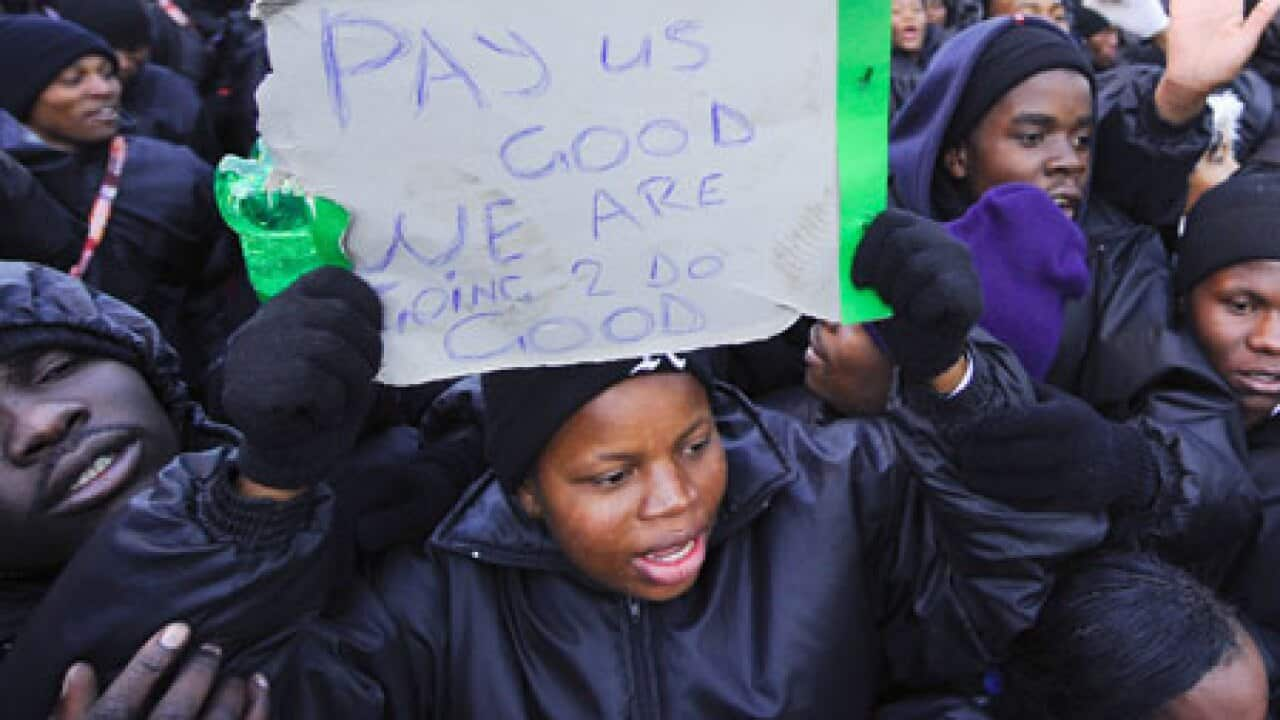South Africa's government said the move would not affect fans' safety but organisers were left red-faced by the failure to contain the industrial unrest.
National police commissioner Bheki Cele said his officers would now be in charge of security at the stadiums in Durban, Cape Town, Port Elizabeth and Johannesburg's Ellis Park where five-times champions Brazil played North Korea.
Around 1,000 police were on duty in and around the ground for one of the most eagerly awaited matches of the first round.
"We have activated necessary and adequate contingency plans to different stadia in the country," said Cele. "We are confident that we will not compromise the safety of the tournament or our day to day normal policing."
An AFP correspondent at Ellis Park reported several hundred staff walked out of the stadium around four hours before kick-off.
Staff at Cape Town staged a similar protest over their pay on Monday night shortly before champions Italy began their defence of the trophy. And their colleagues in Durban clashed with riot police as they protested against their employees after a late game on Sunday.
The dispute is a major embarrassment for organisers who also had to find alternative transport for nearly 1,000 supporters stuck at Johannesburg's showpiece Soccer City stadium Monday when bus drivers staged a wildcat strike.
The organising committee had said on Monday they would convene a meeting between stewards and the security in a bid to resolve the dispute, but their efforts appeared in vain.
The workers say they were initially promised a daily salary of 180 rands (around 24 dollars, 17 euros) plus bonuses by the Stallion security firm but were later told they would get only 120 rands.
Contacted by AFP, a source at the company refused to comment and said questions should be directed towards the organising committee.
Speaking after a cabinet meeting, government spokesman Themba Maseko said the strikes would not affect fans' security.
"The South African police and other security agencies are ready to deal with any situation," he told reporters.
There had been speculation that rights activists would try to stage a protest against North Korea but there was no incident before or during the game, which Brazil won 2-1.
The stadium was mostly a sea of yellow and green Brazil shirts although there was a pocket of around 50 North Korean fans.
One North Korean player, the Japan-based Jong Tae Se, sobbed when the national anthem was played.
While the stewarding row remained unresolved, transport officials said a dispute with drivers on Johannesburg's new bus system had been settled.
Fans attending the Netherlands' match against Denmark in Johannesburg were left fuming Monday after drivers who dropped them off then went on strike.
Ever since it was awarded the hosting rights six years ago, South Africa has had to fend off claims its transport system, lack of infrastructure and high crime make it an unsuitable stage for the world's most popular sporting event.
The strikes came on top of concern about the number of empty seats.
After the sport's governing body FIFA promised to investigate how the attendance at a weekend match was about 8,000 short of capacity, there were more big gaps at Tuesday's game between New Zealand and Slovakia in Rustenburg.
FIFA spokesman Nicolas Maingot said attendance levels had been around 92.5 percent, similar to those in the first round at the last World Cup in Germany.
"It is not nice to see empty seats at stadiums, but so far we have done well in terms of attendance," said Maingot, attributing some of the empty seats to transport problems.
Share

